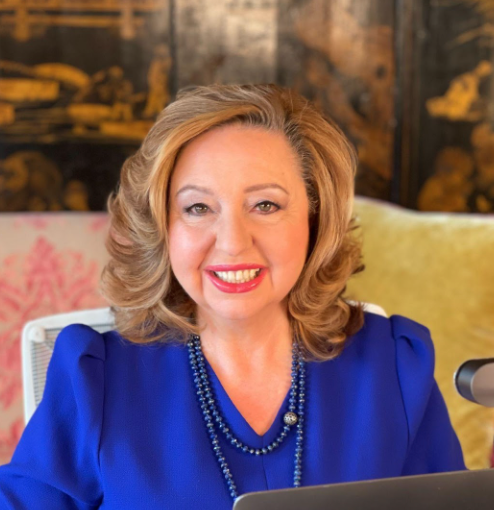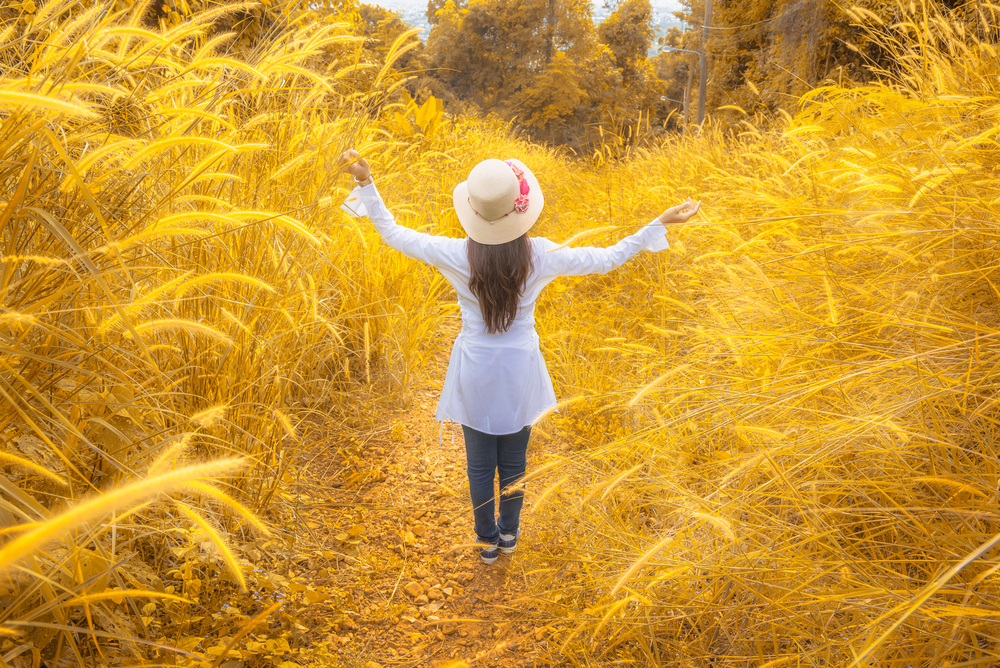A year ago, the pandemic was thrown onto us like a thief lurking in the corner on our way to a happy afternoon stroll: unexpectedly, uninvited, robbing us of our joy, enthusiasm and sense of control. In fact, if the pandemic were a Netflix series, each one of us could write an episode filled with drama, emotions, frustration, bereavement and shock. And now, one year later, we find ourselves ironically more connected to each other than ever before, more aware of our humanity and our sameness than ever before. We are more compassionate, more humble, and more resilient than we’ve ever been. We have learned lessons of awareness that people go to spiritual retreats to learn — lessons about love, acceptance, gratitude and connection to our center — the purification of the ego. All these things that spiritual teachers teach us, and people who seek enlightenment go out to monasteries or mountain tops to find, were thrusted upon us by the great spiritual teacher of the universe, of the mystery of the universe and all that we call the higher intelligence of life.
There is a song in Hamilton that is called “It’s Quiet Uptown”:
There are moments that the words don’t reach
There is suffering too terrible to name
You hold your child as tight as you can
And push away the unimaginable
The moments when you’re in so deep
It feels easier to just swim down
……….
I walk alone to the store
And it’s quiet uptown
I never liked the quiet before
I take the children to church on Sunday
A sign of the cross at the door
And I pray
That never used to happen before
………
If you see him in the street, walking by
Himself, talking to himself, have pity
………….
He is working through the unimaginable
…………
There are moments that the words don’t reach
There is a grace too powerful to name
We push away what we can never understand
We push away the unimaginable
…………
Forgiveness. Can you imagine?
Forgiveness. Can you imagine?
These lyrics resonated with me, as I had never faced so much of the suffering or the pain of missing all the things that had been normal in my life for so long: conversations with the barista at the coffee shop, interactions with waiters at restaurants or even chats with the receptionist at the doctor’s office. Those small moments of connection have always been engraved in my heart. And when the pandemic hit, we tried to create some sense of normalcy with Zoom calls, virtual classes, masked faces and listening to the news, trying to make sense of anything that’s been going on. We jumped into wondering if we could still become productive, and adjust and accept and find our resilience.
I started to become accustomed to getting my groceries from the curbside of a local shop, where I would sit in the car with the windows closed. I would have my coffee and my muffin and suddenly find myself crying, releasing the unimaginable. Then, I would proceed to do guided meditations to keep inspiring and helping others through this imprisonment that we were all feeling. I became completely aware of the human-encrusted part of myself that was up against these incredible restrictions. It felt like having a canvas in front of you and all the paints available, but your hands are suddenly tied, and someone is saying, “Well you can still paint.” For me, I experienced the intense deprivation of life.
And in the midst of all of that, I had a deadline to complete a book on the power of prayer, and I promised myself I would complete an hour to an hour-and-a-half a day. And every time I went to write, kicking and screaming, I felt like I was up against my walls of emotional upsetness, and every time I felt there was a bigger part of me, a larger presence, a deeper connection that would help me overcome the emotional disturbance and write. I felt that there were two different facets to my human nature. The first was the initial overwhelm, the distance, the missing, the grieving, the frustration, the anger, the unfairness of this whole thing. And on the other side, I felt the soulfulness, the peace, the calmness, the vast space inside of me that was completely accepting of this other part of myself — and that if I let myself surrender to that larger part in me, everything I thought was lost was suddenly found. There was an awareness that I was still breathing and I was well and, thank god, healthy, and the people I loved were healthy and well. In the moments of deprivation and disconnection, I would feel a profound connection to myself, to my soul and to my god.
So one year later, I have learned the greatest lessons that I could never have learned from any book, or spiritual retreat, or hours of meditation and yoga practices. The universe had now written a new script for me, and the title was, “Art of Letting Go.” In the midst of everything being taken away, another scene was able to take place.
And although it may feel that your hands are still tied and that you cannot paint on the canvas in front of you, try to look closer and see that images can start to appear even where you cannot paint. This ultimate surrender is eventually what we all go through when we die. We suddenly cannot take everything with us, and the only thing we can do is let go and open our arms and our hearts and our minds to say, “Take me.” It is in that moment where we place the trust of our lives into a bigger plan. It is in that moment where we let go.
So for us, the journey continues, life unfolds, and the question remains: “How agile am I in letting go?” When we ask ourselves that question, we gain a greater understanding of what it is to be a human being. We slowly start to transform the pandemic of suffering into a pandemic of love. It is a transformation that none of us have been given a manual for, but each one of us just writes it, feels it, experiences it, speaks it and embodies it, and that can become a new manual for the 21st century.
For more from Agapi, please visit her website and follow her on Instagram.
Follow us here and subscribe here for all the latest news on how you can keep Thriving.
Stay up to date or catch-up on all our podcasts with Arianna Huffington here.


